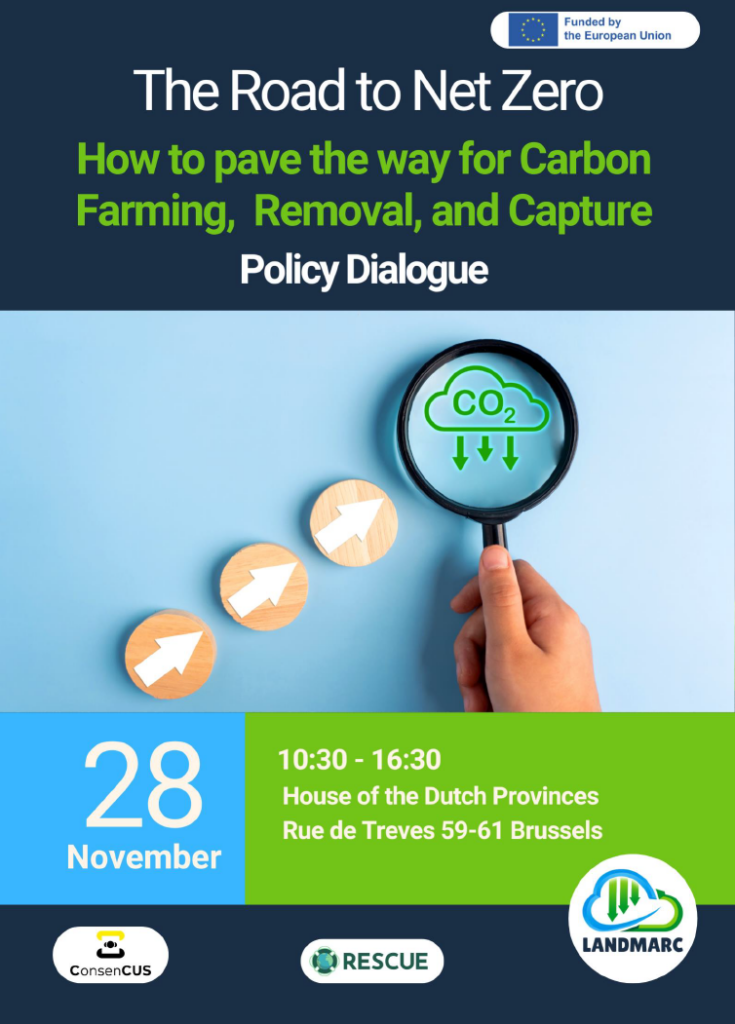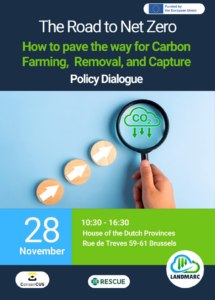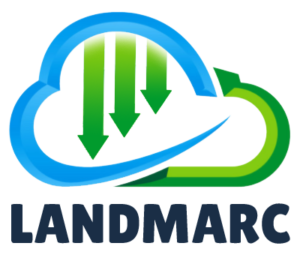LANDMARC’s final policy event is taking place in Brussels on 28 November 2024. The event will focus on the policy implications of Carbon Farming (CF), Carbon Capture and Storage/Utilization (CCS/CCU) and Carbon Dioxide Removal (CDR) technologies.
The Road to Net Zero: How to Pave the Way for Carbon Farming, Removal, and Capture
To reach the world’s climate goals, governments should consider ways of removing carbon dioxide from the atmosphere in addition to stepping up efforts to reduce emissions.
This means we should be thinking about a variety of mitigation approaches. This includes Carbon Farming (CF), Carbon Capture and Storage/Utilization (CCS/CCU) and Carbon Dioxide Removal (CDR) technologies.
We have convened an excellent lineup of speakers and panelists, to discuss the key findings emerging out of three EU research projects and how they could help solve some of Europe’s trickiest climate policy challenges.
A key focus will be to discuss and explore what governments can do (and what they are already doing) to help scale these solutions up in time to meet our collective climate ambitions.
Sign up here: https://www.tickettailor.com/events/landmarc/1345392
This event is organised in collaboration with LANDMARC, RESCUE climate and ConsenCUS.
Event Details:
When? 28 November
What Time? 10:00-16:00
Where? House of the Dutch Provinces, Rue de Treves 59-61, Brussels
What is it about?
This event is organised by three EU-funded research projects, each with their own focus. They are:
· LANDMARC (Carbon farming)
· RESCUE (Carbon Dioxide Removal)
· ConsenCUS, (CCS/CCU)
LANDMARC
LANDMARC project
Negative emission solutions are expected to play a pivotal role in future climate actions and net zero emissions policy scenarios. To date most climate actions have focussed on phasing out fossil fuels and reducing greenhouse gas emissions in, for example, industry, electricity, and transport. While zero emission trajectories in these sectors will remain a priority for decades to come, it is expected that residual GHG emissions will remain. To be able to fulfil the Paris Agreement and meet the world’s climate goals research, policy and markets are increasingly looking at negative emission solutions.
This is why the nineteen LANDMARC consortium partners work together in order to: • Estimate the climate impact of land-based negative emission solutions, in agriculture, forestry, and other land-use sectors • Assess the potential for regional and global upscaling of negative emission solutions • Map their potential environmental, economic, and social co-benefits and trade-offs LANDMARC is an interdisciplinary consortium with expertise from ecology, engineering, climate sciences, global carbon cycle, soil sciences, satellite earth observation sciences, agronomy, economics, social sciences, and business. There is a balanced representation of partners from academia, SMEs, and NGOs from the EU, Africa, Asia and the Americas, which ensures a wide coverage of LMTs operating in different contexts (e.g. climates, land-use practices, socio-economic etc.) and spatial scales.Project details
- Project title: “LAND-use based MitigAtion for Resilient Climate pathways”
- Funding scheme: European Union Horizon 2020 Programme (EU H2020, Grant agreement ID: 869367)
- Duration: 4 years (1 July 2020 – 30 June 2024)
- Project coordinator: Technische Universiteit Delft, Dr. Jenny Lieu
- Project website: www.landmarc2020.eu



